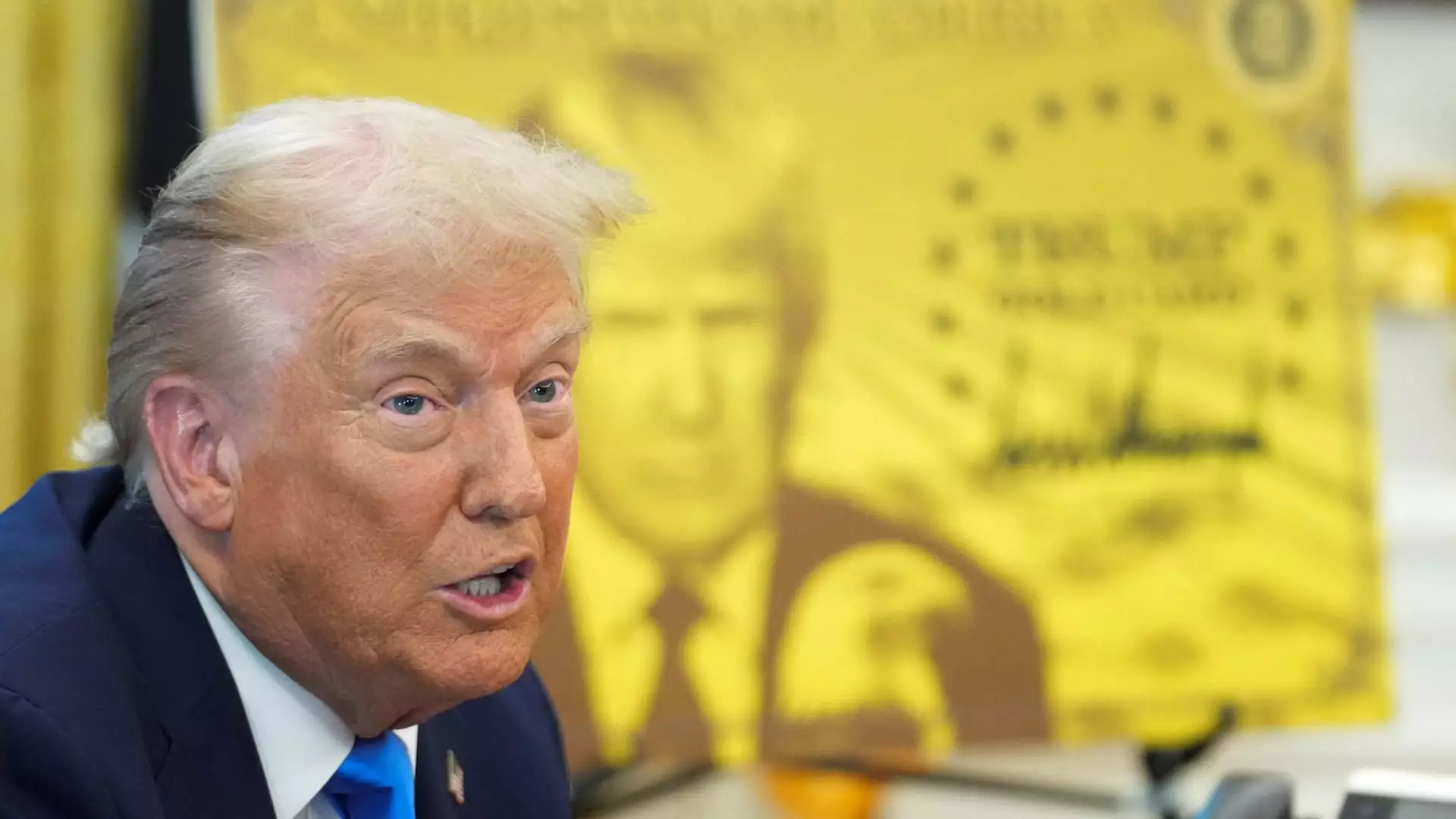The Trump administration’s announcement to impose a hefty $100,000 annual fee on H-1B visas marks a startling attempt to reshape the landscape of immigration and technology in the United States. While touted as a measure to prioritize American workers, this policy reveals a misguided focus on protectionism that risks undermining the very foundations of the nation’s innovation economy. The decision, made abruptly and with little regard for its broader consequences, exposes a fundamental misunderstanding of how high-skilled immigration fuels growth rather than hampers it.
This move can be interpreted as part of a broader trend within the center-right spectrum to emphasize national interests, but it overreaches by neglecting the interconnectedness of global talent networks. Instead of fostering a climate of openness that attracts the brightest minds, it erects barriers that threaten to push industry leaders to reconsider their reliance on foreign expertise. The aggressive nature of the fee — applied per worker, per year — could cripple firms that depend heavily on specialized talent sourced from countries like India and China, thus diminishing America’s competitive edge.
The Immediate Shockwaves: Corporate Anxiety and Strategic Responses
Major corporations, especially in the tech and financial sectors, have reacted with apprehension. Companies like Amazon, Microsoft, JPMorgan Chase, and Google, which rely extensively on H-1B visa holders, rapidly issued internal advisories urging their overseas employees to return or remain in the U.S., fearing indefinite disruptions. This hurried response underscores an industry already on edge, knowing that the policy’s implementation could deplete their talent pipelines overnight.
What’s striking is the political and economic myopia evident in these plans. The policy proposal appears to ignore the reality that America’s tech industry has long thrived because of its openness to global talent. Artificially taxing or restricting visas hampers this ecosystem and risks losing ground to countries still welcoming high-skilled immigrants. Moreover, the executive’s reckless approach to immigration seems less about strategic national interest and more about appeasing domestic political pressures, which may ultimately backfire by stifling economic growth.
Global Ramifications and Diplomatic Tensions
The ripple effect extends well beyond U.S. borders, with foreign governments scrutinizing the new restrictions and their impact on their own citizens. India’s Ministry of External Affairs, for instance, rightly pointed out the potential human costs of such policies, recognizing that families and careers are intricately tied to these visa arrangements. South Korea and other allied nations are watching closely, aware that their highly skilled labor force and economic cooperation with the U.S. could be strained by capricious rules.
This international uncertainty diminishes America’s perceived fairness and reliability as a global leader in innovation and opportunity. It echoes a troubling tendency toward protectionism that could trigger retaliatory measures or push talented individuals to pursue opportunities in more welcoming countries. The International perception of the U.S. as a hub for leading-edge technology and research hinges on tangible policies that promote openness, not barricades that threaten to stifle progress.
The Paradox of Protectionism in a Global Economy
Ironically, by attempting to insulate domestic workers through such exorbitant fees, the administration risks sabotaging their interests in the long term. Innovation depends fundamentally on access to diverse perspectives, cutting-edge skills, and international collaboration. Cutting off talent supply chains may yield superficial wins in political rhetoric but will erode the very competitive advantage that has made the U.S. a technological leader for decades.
In an era where technological supremacy is intertwined with economic resilience and national security, the reckless imposition of such barriers appears shortsighted and internally inconsistent. The notion that an inflated fee can compensate for the loss of advanced human capital betrays a fundamental misunderstanding of what drives innovation. It also signals a retreat from the pragmatic center-right approach that recognizes the importance of pragmatic, economically sound immigration policies.
Much remains to be seen whether this policy will proceed as announced or wilt under industry and diplomatic pressure. What’s clear is that embracing a high-cost, protectionist stance flies in the face of American innovation culture and risks doing more damage than good in the long run. Leadership in the modern world hinges on strategic openness, not knee-jerk delegitimization of global talent—which ultimately could set the U.S. back in the densely competitive race for technological dominance.

